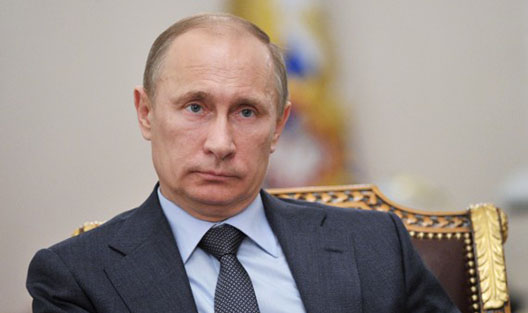
US Should Stress to Russia the Costs it Will Pay at Home
Russia’s invasion of Crimea, and the Russian parliament’s authorization for President Vladimir Putin’s to use military force throughout Ukraine, reflects Putin’s longstanding desire to reacquire territory lost through the collapse of the Soviet Union. This incursion violates a treaty Russia signed in 1994 with Ukraine, the United States and the United Kingdom in which Ukraine surrendered its nuclear weapons in return for a commitment by Moscow to accept and respect it territorial sovereignty.
A continued effort by Putin to seize at least part of Ukraine risks significant blowback beyond an international response that Moscow will hopefully come to regret. This blowback includes the following:
Related Content
|
- Putin will go down in history as the Russian who shattered what remains of a historic link between Russians and Ukrainians. Putin visited Kiev in July asserting that centuries-old ties between the two peoples, dating back to the time of Kievan Rus, is the foundation for his vision of Eurasian Union. While Putin’s refusal to accept Ukraine as an independent state has always left Ukrainians uneasy, his seizure of Ukrainian territory will generate intense animosity among them toward Moscow. Putin will be remembered as the leader that destroyed the last fraternal link between Russians and Ukrainians. Moscow should recall the intensity of the Ukrainian resistance to Moscow’s occupation after World War II and be aware that seizure of part of Ukraine, even just Crimea, will ensure that an intensely anti-Russia state is created on its border.
- Putin’s occupation of Crimea will fuel the secessionist fire in the Russian Caucasus. If a Russian majority in Crimea can force its secession from Ukraine on purely ethnic grounds, why shouldn’t Chechens, Dagestanis, Circassians and other minorities in Russia have the same right? With Crimea a stone’s throw from the Caucasus, which has suffered two recent wars over Chechnya’s desire for independence – and which today faces violent separatist movements, it is surprising that Moscow is giving legitimacy to ethnic separatism.
- Putin’s entire strategy of political, economic, and military coercion toward Ukraine will set back Russia’s relations with its other neighbors, particularly those in the Black Sea region, the Caucasus and Central Asia. It certainly betrays the underlying objective driving Putin’s vision for Eurasia Union – the creation of a set of satellite states in the space of the former Soviet Union that have surrendered much, if not all, of their sovereignty to Moscow.
To date, the West clearly lacks a prudent, calmly executed, yet forceful economic, diplomatic and military response to Russia’s aggression toward Ukraine. Putin’s recent escalation of his military threat makes a firm Western response all the more urgent.
These blow-back realities alone are unlikely to cause Putin to change course.
But as the US and its allies decide what costs they are willing to impose for Russia’s aggression, they should consider how to leverage the additional price that Russia will pay in its own back yard. The West’s response should include ensuring that Moscow’s policy-makers and, indeed, the Russian people, recognize how Putin’s provocative use of force in Ukraine could generate a wider crisis of unpredictable and adverse consequences, including for Russia’s own internal security.
Ian Brzezinski is a resident senior fellow with the Brent Scowcroft Center on International Security and a former deputy assistant secretary of defense for Europe and NATO policy.
